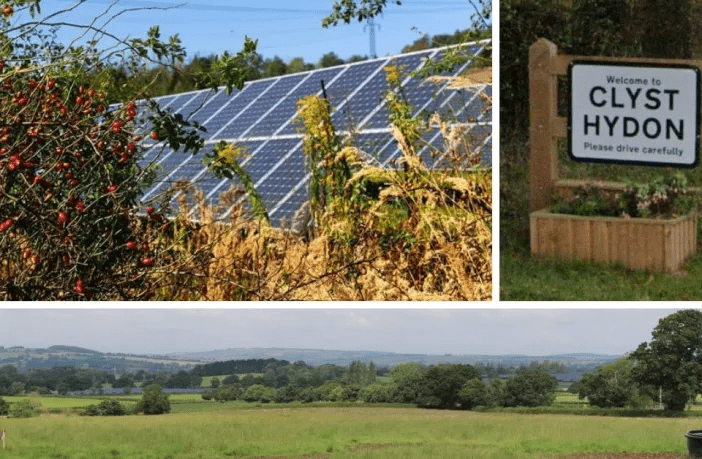“Total energy used in Devon for electricity, heat and transport needs to rise to near 100% by 2050.”
“Full decarbonisation is possible using renewables that occupy a manageable fraction of UK land and sea areas. And which provide reliable, dispatchable power.”
“What is our solar farm strategy? Well, I can tell you what our solar farm strategy is at East Devon. We haven’t got one. That’s what the strategy is.”
.
Is it possible for a nation like Britain – let alone an area like Devon – to be entirely self-sufficient in food? Autarky in Devon – Vision Group for Sidmouth
And is it possible to be entirely self-sufficient in energy?
This is the question considered in this evening’s final episode of ‘the new age of autarky’ – which takes us up to a solar farm on Salisbury Plain: BBC Radio 4 – The New Age of Autarky?
The UK government would like to think it is possible: Major acceleration of homegrown power in Britain’s plan for greater energy independence – GOV.UK
The FT’s writer on globalisation thinks differently: National self-sufficiency isn’t the answer to the energy shock | Financial Times
The Devon Carbon Plan envisages local production of all energy needs:
In 2018, seven percent of the total energy used in Devon for electricity, heat and transport was met by renewable sources.4 This needs to rise to near 100% by 2050… If Devon were to generate all this new demand within its boundary, approximately eight times more renewable electricity generating capacity would need to be installed on rooftops and through field-scale projects. 8. Energy Supply – Devon Climate Emergency
There are certainly more suppliers of energy self-sufficiency: Off Grid Solar Systems Exeter | Solar Energy Exeter
But how much land will be swallowed up to house local energy production?
There is a lot of local resistance to local power in the South West: Solar farm plans refused at highest rate for five years in Great Britain | Solar power | The Guardian
And yet, estimates of how much land will be needed indicate that it won’t be too much:
Full decarbonisation is possible using renewables that occupy a manageable fraction of UK land and sea areas. And which provide reliable, dispatchable power. How much space will a 100% renewables UK require? | Carbon Commentary
Meanwhile in East Devon, a new solar farm has been approved:

But there are questions:
Conservative councillor for Tale Vale and leader of the Tory group Philip Skinner, whose family have been farmers in the area for many years, proposed to defer the decision until further questions could be answered. Cllr Skinner said he was aware of several other potential solar farms in the pipeline and was concerned the situation could get out of hand.
“What is enough?” he asked fellow councillors. “What would we find acceptable in acreage of solar panels? If we’re going to take them on the basis of one at a time. At what point does saturation come? Is there a saturation point?”
If all the other solar farm plans were given the thumbs-up, Cllr Skinner believed the amount of land at stake was vast. “We’re talking about a thousand acres. Is that acceptable? If it is acceptable, that’s fine. Is 2,000 acres acceptable? Is 3,000 acres acceptable? Because if you’re going to get to a point, you’re going to say this is not acceptable. We should be finding out what that acceptability is and balancing that back about what energy can be produced from the Broadclyst substation – about what they can take on – for us to understand what acceptability is.”
Cllr Skinner also responded to a question by one objector, Duncan Sykes, who asked what the council’s solar strategy was. Cllr Skinner said: “That’s a brilliant question. What is our solar farm strategy? Well, I can tell you what our solar farm strategy is at East Devon. We haven’t got one. That’s what the strategy is. What we’ve got is applications coming through the process on a local plan that is disappearing, on an emerging local plan that is not yet in place.”
Solar farm coming to East Devon village will power 15,000 homes
Finally, there is the bigger discussion:
Globalisation and self-sufficiency | openDemocracy
Globalisation and autocracy are locked together. For how much longer? | The Economist
Goodbye globalisation: The dangerous lure of self-sufficiency | May 16th 2020 | The Economist